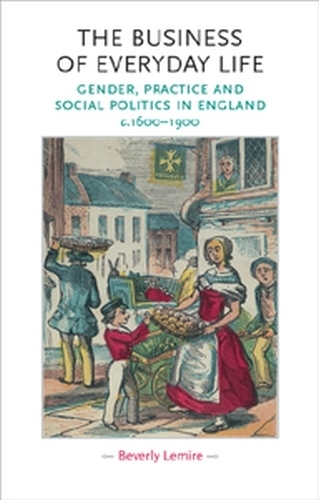
The Business of Everyday Life: Gender, Practice and Social Politics in England, C.16001900
(Paperback)
Publishing Details
The Business of Everyday Life: Gender, Practice and Social Politics in England, C.16001900
By (Author) Beverly Lemire
Manchester University Press
Manchester University Press
2nd January 2012
United Kingdom
Classifications
Adult Education
305.4209410903
Physical Properties
Paperback
272
Width 138mm, Height 216mm
Description
From 1600 to 1900 a growing consumerism fired the English economy, shaping the priorities of individuals, and determining the allocation of resources within families. Everyday business might mean making a trip to the pawnbroker, giving a loan to a trusted friend of selling off a coat, all to make ends meet. Both women and men engaged in this daily budgeting, but women's roles were especially important in achieving some level of comfort and avoiding penury. In some communities, the daily practices in place in the seventeenth century persisted into the twentieth, whilst other groups adopted new ways, such as using numbers to chart domestic affairs and turning to the savings banks that appeared in the nineteenth century. In the material world of the past and in the changing habits of earlier generations lie crucial turning points. This book explores these previously under-researched patterns and practices that gave shape to modern consumer society. -- .
Reviews
'Professor Beverly Lemire has provided a well-argued, solidly researched, and clearly written interpretation of the English material world from pre-industrial to industrial times. This highly accessible study merits close scrutiny by economic and social historians as well as as general readers.' Michael J. Galgano, James Madison University (Canadian Journal of History)
Author Bio
Beverly Lemire is Professor of History and Henry Marshall Tory Chair at the University of Alberta, Canada
